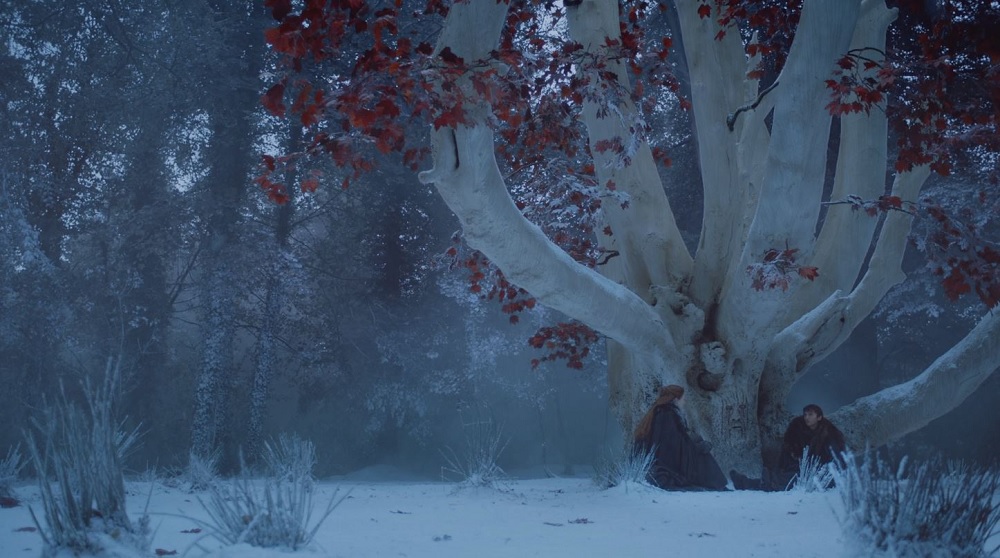
As there are carols in the air and holiday cheer all around us this time of year, you may be wondering if there is anything similar for our fantasy friends in Westeros? Are there decorated trees, candle lighting, a Santa Claus throwing presents down chimneys, or any sort of midwinter holidays going on? We’ll take a look at what George R.R. Martin has his characters celebrating and how they compare to our real-life traditions.
One thing to keep in mind with Westerosi holidays is that the highly irregular seasons have a huge impact on when and what the people of Westeros celebrate. In our world, there are festivals and feasts that mark the changing of each season to another, and harvest and midwinter festivals. Christmas was originally a raucous pagan midwinter celebration of the brutal cold being half over, one that converted Christians brought with them. But when there are years or decades between winter and summer, there’s very little to regularly celebrate or convenient seasonal changes to look for. In the Long Summer, you’d be harvesting food all year around. And the Long Winters or Long Nights, you’d never know when it was half over as the years of cold drag on and on; so how would you know when to celebrate? Especially with icy butchers lurking in the dark.
In the South, there are more holidays that we would recognize. Each of the aspects of the Faith of the Seven receives their own feast. The one we see celebrated is Maiden’s Day.
Fast and purify . . . oh, for Maiden’s Day. It had been years since Cersei had been required to observe that particular holy day. Thrice wed, yet she still would have us believe she is a maid. Demure in white, the little queen would lead her hens to Baelor’s Sept to light tall white candles at the Maiden’s feet and hang parchment garlands about her holy neck. A few of her hens, at least. On Maiden’s Day widows, mothers, and whores alike were barred from the septs, along with men, lest they profane the sacred songs of innocence. Only virgin maids could . . .
A Feast for Crows, Cersei IX
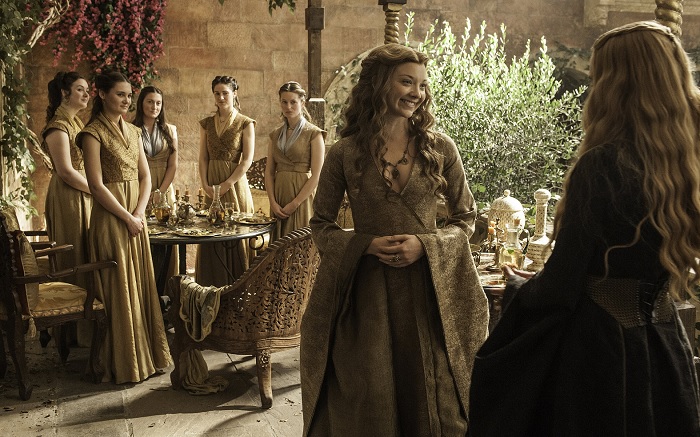
In this particular passage Cersei is formulating the strategy that leads to the arrest of Margaery Tyrell. Cersei orders her man Osney Kettleback to seduce the young queen to have her tried for being unfaithful to her husband and the Faith of the Seven. Failing that, she continues manufacturing evidence that Margaery is not a virgin, and the Queen of the Seven Kingdoms is arrested. Not exactly a joyous holiday.
The Seven Kingdoms also celebrate New Year’s Eve as we know it: a night of drinking, debauchery, and fun had by all, as they turn the calendar to another year. Despite their lack of seasonal changes they still manage to count the number of days in a year, likely by tracking the positions of the star in the sky. The wedding of King Joffrey to Margaery Tyrell took place on the first day of the new year and century, 300 A.C., likely an attempt by the Crown to have a citywide celebration to mask Joffrey’s historic unpopularity and to turn a new leaf.
“I rather liked these accommodations. Have you set a date for this great wedding?”
“Joffrey and Margaery shall marry on the first day of the new year, which as it happens is also the first day of the new century. The ceremony will herald the dawn of a new era.”
A new Lannister era, thought Tyrion. “Oh, bother, I fear I’ve made other plans for that day.” –
A Storm of Swords, Tyrion I
Unfortunately, that holiday is again spoiled by court scheming with the death of Joffrey by poisoning. They just have the worst luck at celebrating anything in Westeros with George R.R. Martin at the wheel.
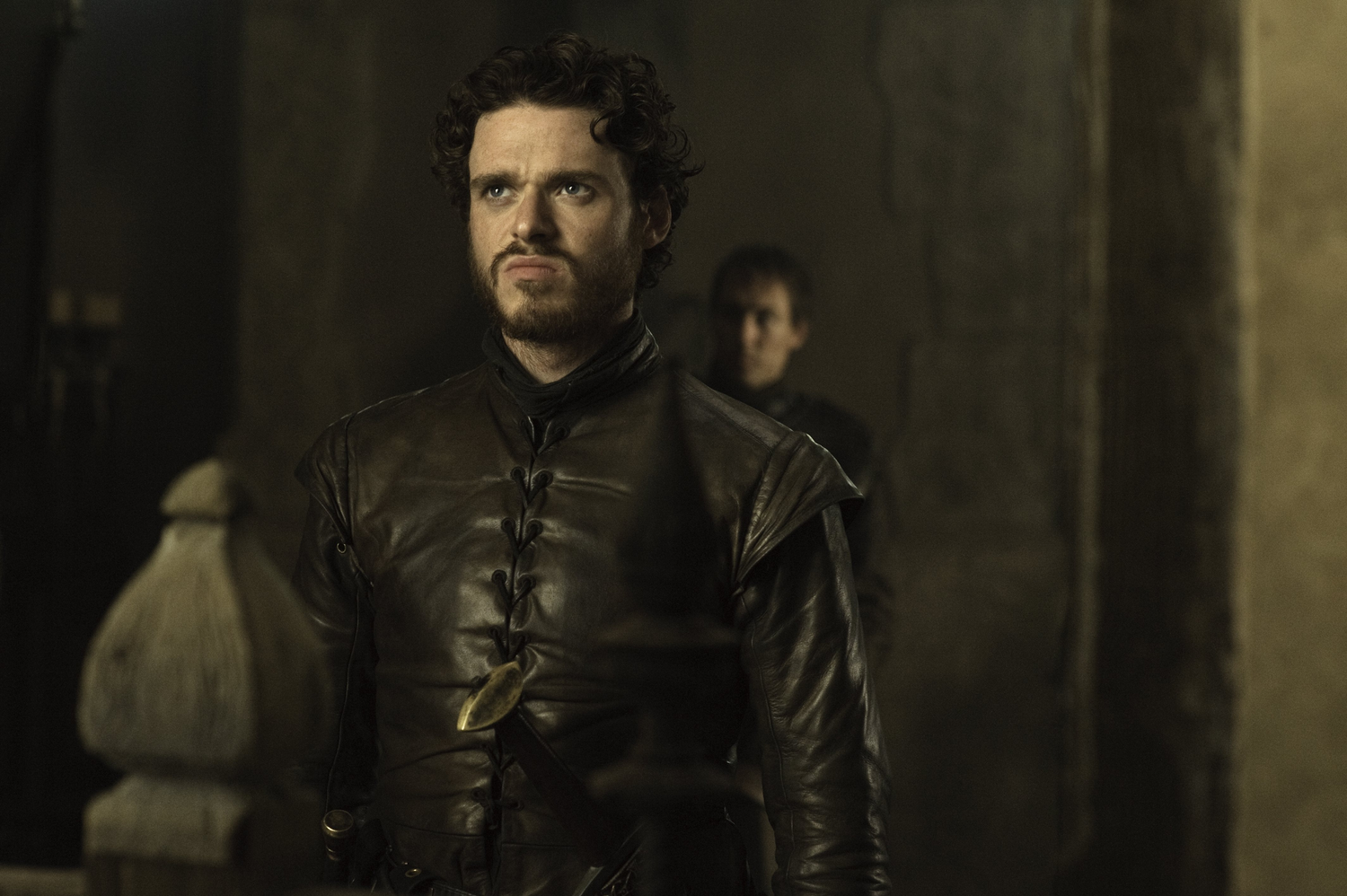
It’s notable that Robb Stark plans his attack on the Ironborn holding Moat Cailin on New Year’s Day as well. He had hoped to take advantage of the defenders making a bit too merry the night before.
Three hosts will leave the Twins, but only two will reach Moat Cailin. Mine own battle will melt away into the Neck, to reemerge on the Fever. If we move swiftly once my uncle’s wed, we can all be in position by year’s end. We will fall upon the Moat from three sides on the first day of the new century, as the ironmen are waking with hammers beating at their heads from the mead they’ll quaff the night before.”
A Storm of Swords, Catelyn V
And again, another fine holiday celebration gone awry as Robb is slain at the Red Wedding with most of his men and leadership before they can put this plan into effect.
Aside from the other six holidays for the Faith of the Seven and New Year’s Day, the novels and show are conspicuously lacking in feasts and festivals. The other main feast we see is the Winterfell harvest festival which signals the coming fall. Of those we’ve seen so far, the Northern party seems by far the best. Almost all the nobility left in the North following Robb calling his banners turn up for a rip-roaring good time in Winterfell.
Lord Wyman Manderly, Lady Hornwood, the Cerwyns, Mors “Crowsfood” and Hother “Whoresbane” Umber, the Tallharts, Meera and Jojen Reed, and the Cassels all descend on the castle bringing gifts and food and drink to share. In normal times, almost all the lords of the North may have arrived at once. As brought up earlier, the inconsistency of the seasons means that this may be the only autumn harvest festival the North sees for years. Winters sometimes only last a couple of years, but have been documented to last decades. Many will die of starvation and freeze in the unmerciful cold of Northern winter, so the harvest festival of the North is something of a last hurrah, especially for the older folk.
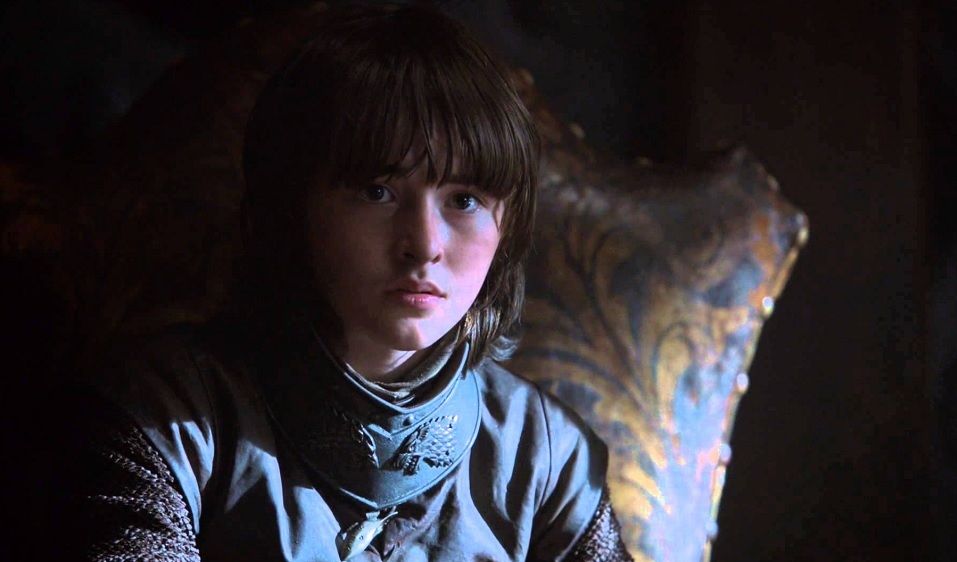
With Robb gone south, it was left to the crippled Bran Stark as acting lord to preside over the feast.
The low stone steps balked Dancer only for a moment. When Bran urged her on, she took them easily. Beyond the wide oak-and-iron doors, eight long rows of trestle tables filled Winterfell’s Great Hall, four on each side of the center aisle. Men crowded shoulder to shoulder on the benches. “Stark!” they called as Bran trotted past, rising to their feet.
“Winterfell! Winterfell!”
He was old enough to know that it was not truly him they shouted for—it was the harvest they cheered, it was Robb and his victories, it was his lord father and his grandfather and all the Starks going back eight thousand years. Still, it made him swell with pride.
A Clash of Kings, Bran III
Then came the dancing and singing and hard partying of the Northerners. And, of course, George’s infamous food porn.
Such food Bran had never seen; course after course after course, so much that he could not manage more than a bite or two of each dish. There were great joints of aurochs roasted with leeks, venison pies chunky with carrots, bacon, and mushrooms, mutton chops sauced in honey and cloves, savory duck, peppered boar, goose, skewers of pigeon and capon, beef-and-barley stew, cold fruit soup. Lord Wyman had brought twenty casks of fish from White Harbor packed in salt and seaweed; whitefish and winkles, crabs and mussels, clams, herring, cod, salmon, lobster and lampreys. There was black bread and honeycakes and oaten biscuits; there were turnips and pease and beets, beans and squash and huge red onions; there were baked apples and berry tarts and pears poached in strongwine. Wheels of white cheese were set at every table, above and below the salt, and flagons of hot spice wine and chilled autumn ale were passed up and down the tables.
Lord Wyman’s musicians played bravely and well, but harp and fiddle and horn were soon drowned beneath a tide of talk and laughter, the clash of cup and plate, and the snarling of hounds fighting for table scraps. The singer sang good songs, “Iron Lances” and “The Burning of the Ships” and “The Bear and the Maiden Fair,” but only Hodor seemed to be listening. He stood beside the piper, hopping from one foot to the other.
The noise swelled to a steady rumbling roar, a great heady stew of sound.
A Clash Of Kings Bran III
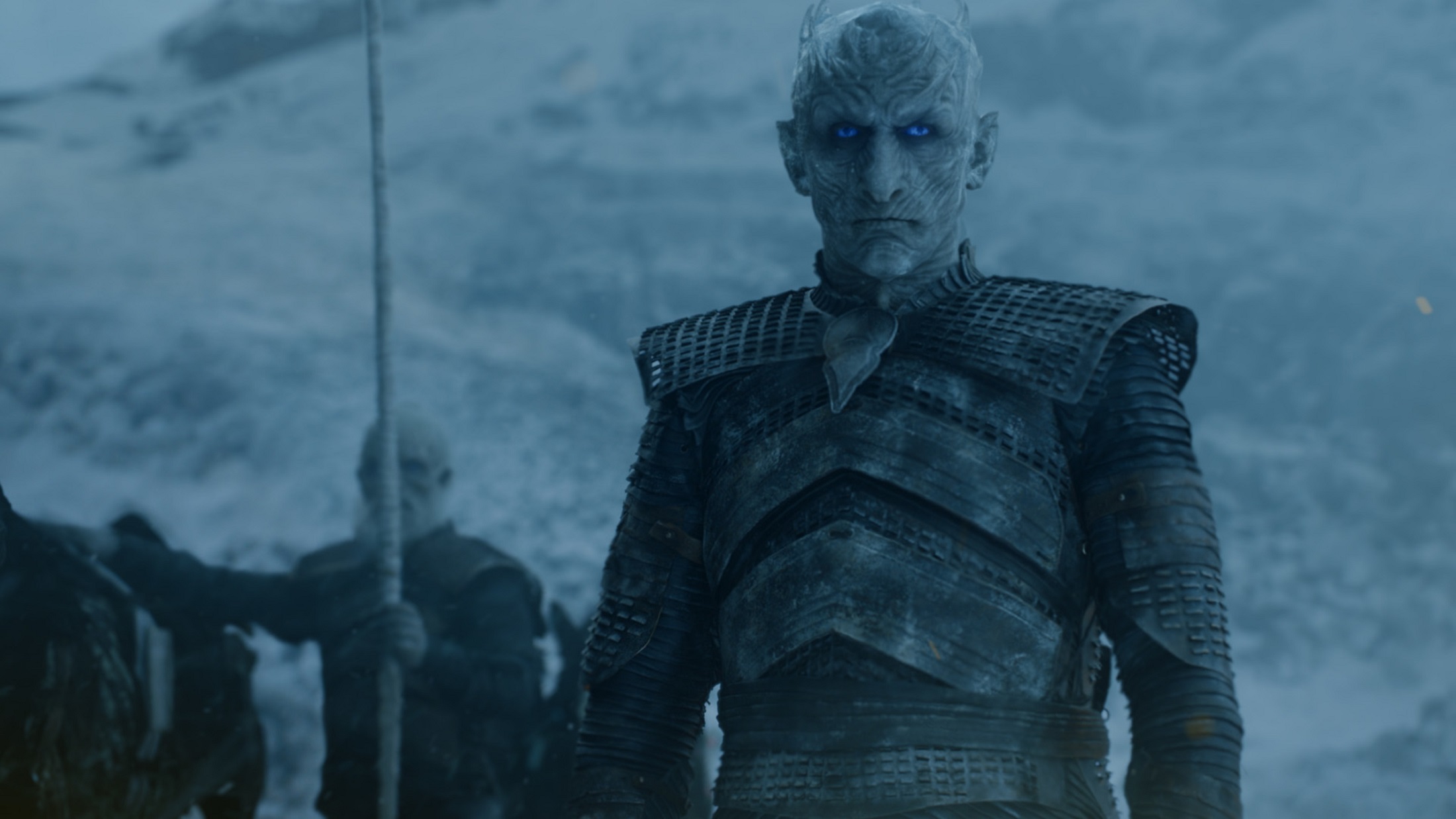
Near the end of the harvest feast, we are told of a song that we do not learn the words to, but seems critical to the Northerners and the celebration.
Much later, after all the sweets had been served and washed down with gallons of summerwine, the food was cleared and the tables shoved back against the walls to make room for the dancing. The music grew wilder, the drummers joined in, and Hother Umber brought forth a huge curved warhorn banded in silver. When the singer reached the part in “The Night That Ended” where the Night’s Watch rode forth to meet the Others in the Battle for the Dawn, he blew a blast that set all the dogs to barking.
Two Glover men began a spinning skirl on bladder and woodharp. Mors Umber was the first on his feet. He seized a passing serving girl by the arm, knocking the flagon of wine out of her hands to shatter on the floor. Amidst the rushes and bones and bits of bread that littered the stone, he whirled her and spun her and tossed her in the air. The girl squealed with laughter and turned red as her skirts swirled and lifted.
A Clash of Kings, Bran III
It’s almost certain the song “The Night That Ended” contains details of the defeat of the Others (White Walkers). Every autumn the North celebrates that they’ve beat back the icy demons of winter and brought summer back. While there is for sure a particular day the Long Night ended and the North triumphed, it may make no sense to celebrate it, as during any particular year the day could fall in the dead of winter or the height of summer. There’s also likely a corresponding spring festival celebrating the same, a “we survived winter” party and mourning those who did not.
As for what we would think of as holiday and Christmas decorations, Westeros is lacking. The closest the Westerosi come to what we would recognize as decorations is the ancient Northern practice of “decorating” weirwoods. Old God worship is tied to human and blood sacrifice, and this gruesome image from the books:
It’s said they hung their entrails in the branches of the heart tree, as an offering to the gods. The old gods, not these new ones from the south. Your Seven don’t know winter, and winter don’t know them.”
A Dance with Dragons, Davos IV
The original language of the First Men—known as the Old Tongue—has come to be spoken only by the wildlings beyond the Wall, and many other aspects of their culture have faded away (such as the grislier aspects of their worship, when criminals and traitors were killed and their bodies and entrails hung from the branches of weirwoods.)
The World of Ice and Fire
A gross, bloody version of garland on a Christmas tree. Like most things in Westeros. the holidays and festivals are horrific and often get people killed unexpectedly.
As for mythological figures like Santa Claus, Saint Nicholas, Sinterklass, or Odin, Westeros again is lacking. There’s only the Others and they are closer to a Krampus-like figure: a half-human demon who punishes the wicked children while rattling chains. Except there’s no carrot to the Krampus stick. There’s no jolly figure bringing cheer and presents; the only gifts are slaughter, undeath, and the icy blue eyes of doom.
There’s also a vaguely Krampus-like figure wandering the Nightfort according to the terrifying tales of Old Nan.
This was the castle where King Sherrit had called down his curse on the Andals of old, where the ’prentice boys had faced the thing that came in the night, where blind Symeon Star-Eyes had seen the hellhounds fighting. Mad Axe had once walked these yards and climbed these towers, butchering his brothers in the dark.
Or maybe it wasn’t Mad Axe at all, maybe it was the thing that came in the night. The ’prentice boys all saw it, Old Nan said, but afterward when they told their Lord Commander every description had been different. And three died within the year, and the fourth went mad, and a hundred years later when the thing had come again, the ’prentice boys were seen shambling along behind it, all in chains.
The footfalls sounded heavy to Bran, slow, ponderous, scraping against the stone. It must be huge. Mad Axe had been a big man in Old Nan’s story, and the thing that came in the night had been monstrous.
A Storm of Swords, Bran IV
According to European tradition, Krampus gave out punishment to the naughty children on Christmas. He would hit them with birch branches and rattle around his chains to scare them. In some stories, he would even take the naughtiest children with him to Hell. The “Thing that came in the Night” seems very similar- a monstrous being that punishes children and chains them up.
That’s reason number 65341 why it would be terrible to live in the world of Game of Thrones. We should be happy the worst we deal with around the holidays is family gatherings, overly-opinionated uncles, and overplayed songs. Have a very happy holiday- and run if ‘The Rains of Castamere” starts playing!
The post The Night That Ended: The Holidays in Westeros appeared first on Watchers on the Wall.
Via http://watchersonthewall.com
No comments:
Post a Comment